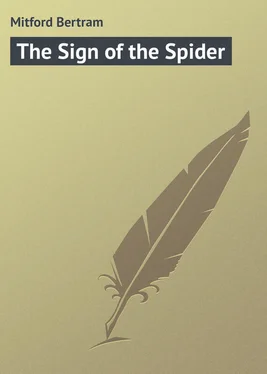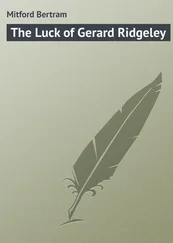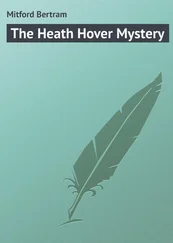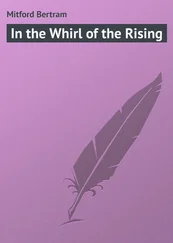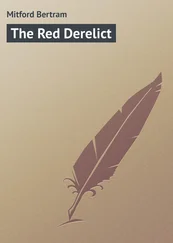Bertram Mitford - The Sign of the Spider
Здесь есть возможность читать онлайн «Bertram Mitford - The Sign of the Spider» — ознакомительный отрывок электронной книги совершенно бесплатно, а после прочтения отрывка купить полную версию. В некоторых случаях можно слушать аудио, скачать через торрент в формате fb2 и присутствует краткое содержание. Жанр: Прочие приключения, foreign_prose, foreign_language, на английском языке. Описание произведения, (предисловие) а так же отзывы посетителей доступны на портале библиотеки ЛибКат.
- Название:The Sign of the Spider
- Автор:
- Жанр:
- Год:неизвестен
- ISBN:нет данных
- Рейтинг книги:3 / 5. Голосов: 1
-
Избранное:Добавить в избранное
- Отзывы:
-
Ваша оценка:
- 60
- 1
- 2
- 3
- 4
- 5
The Sign of the Spider: краткое содержание, описание и аннотация
Предлагаем к чтению аннотацию, описание, краткое содержание или предисловие (зависит от того, что написал сам автор книги «The Sign of the Spider»). Если вы не нашли необходимую информацию о книге — напишите в комментариях, мы постараемся отыскать её.
The Sign of the Spider — читать онлайн ознакомительный отрывок
Ниже представлен текст книги, разбитый по страницам. Система сохранения места последней прочитанной страницы, позволяет с удобством читать онлайн бесплатно книгу «The Sign of the Spider», без необходимости каждый раз заново искать на чём Вы остановились. Поставьте закладку, и сможете в любой момент перейти на страницу, на которой закончили чтение.
Интервал:
Закладка:
Mitford Bertram
The Sign of the Spider
CHAPTER I.
"SWEET HOME!"
She was talking at him.
This was a thing she frequently did, and she had two ways of doing it. One was to talk at him through a third party when they two were not alone together; the other to convey moralizings and innuendo for his edification when they were – as in the present case.
Just now she was extolling the superabundant virtues of somebody else's husband, with a tone and meaning which were intended to convey to Laurence Stanninghame that she wished to Heaven one-twentieth part of them was vested in hers.
He was accustomed to being thus talked at. He ought to be, seeing he had known about thirteen years of it, on and off. But he did not like it any the better from force of habit. We doubt if anybody ever does. However, he had long ceased to take any notice, in the way of retort, no matter how acrid the tone, how biting the innuendo. Now, pushing back his chair from the breakfast-table, he got up, and, turning to the mantelpiece, proceeded to fill a pipe. His spouse, exasperated by his silence, continued to talk at – his back.
The sickly rays of the autumn sun struggled feebly through the murk of the suburban atmosphere, creeping half-ashamedly over the well-worn carpet, then up to the dingy wall-paper, whose dinginess had this redeeming point, that it toned down what otherwise would have been staring, crude, hideous. The furniture was battered and worn, and there was an atmosphere of dustiness, thick-laid, grimy, which seemed inseparable from the place. In the street a piano-organ, engineered by a brace of sham Italians, was rapping out the latest music-hall abomination. Laurence Stanninghame turned again to his wife, who was still seated at the table.
"Continue," he said. "It is a great art knowing when to make the most of one's opportunities, which, for present purposes, may be taken to mean that you had better let off all the steam you can, for you have only two days more to do it in – only two whole days."
"Going away again?" (staccato).
Laurence nodded, and emitted a cloud or two of smoke.
There rumbled forth a cannonade of words, which did not precisely express approval. Then, staccato:
"Where are you going to this time?"
"Johannesburg."
"What? But it's nonsense."
"It's fact."
"Well – of course you can't go."
"Who says so?"
"Of course you can't go, and leave us here all alone," she replied, speaking quickly. "Why, it's too preposterous! I've been treated shamefully enough all these years, but this puts the crowning straw on to it," she went on, beginning to mix her metaphor, as angry people – and especially angry women – will. "Of course you can't go!"
To one statement, as made above, he was at no pains to reply. He had heard it so often that it had long since passed into the category of "not new, not true, and doesn't matter." To the other he answered:
"I've an idea that the term 'of course' makes the other way; I can go, and I am going – in fact, I have already booked my passage by the Persian , sailing from Southampton the day after to-morrow. Look! will that convince you?" holding out the passage ticket.
Then there was a scene – an awful racket. It was infamous. She would not put up with such treatment. It amounted to desertion, and so forth. Yes, it was a "scene," indeed. But force of habit had utterly dulled its effectiveness as a weapon. Indeed, the only effect it might have been calculated to produce in the mind of the offending party had he not already secured his berth, would be that of moving him to sally forth and carry out that operation on the spot.
"Look here!" he said, when failure of breath and vocabulary had perforce effected a lull. "I've had about enough of this awful life, and so I'm going to try if I can't do something to set things right again, before it's too late. Now, the Johannesburg 'boom' is the thing to do it, if anything will. It's kill or cure."
"And what if it's kill?"
"What if it's kill? Then, one may as well take it fighting. Better, anyway, than scattering one's brains on that hearth-rug some morning in the small hours out of sheer disgust with the dead hopelessness of life. That's what it is coming to as things now are."
"All very well. But, in that case, what is to become of me – of us?"
A very hard look came into the man's face at the question.
"In that case – draw on the other side of the house. There's plenty there," he answered shortly, re-lighting his pipe, which had gone out in mid-blast.
The reply seemed to fan up her wrath anew, and she started in to talk at him again. Under which circumstances, perhaps it was just as well that a couple of heavy bangs overhead and a series of appalling yells, betokening a nursery catastrophe, should cut short her eloquence, and start her off, panic-stricken, to investigate.
Left alone, still standing with his back to the mantelpiece, Laurence Stanninghame put forth a hand. It shook – was, in fact, all of a tremble.
"Look at that!" he said to himself. "The squalid racket of this rough-and-tumble life is playing the devil with my nerves. I believe I couldn't drink a wineglassful of grog at this moment without spilling half of it on the floor. I'll try, anyhow."
He unlocked a chiffonier, produced a whisky bottle, and, having poured some into a wineglass, not filling it, tossed off the "nip."
"That's better," he said. Then mechanically he moved to the window and stood looking out, though in reality seeing nothing. He was thinking – thinking hard. The course he had decided to adopt was the right thing – as to that he had no sort of doubt. He had no regular income, and such remnant of capital as he still possessed was dwindling alarmingly. Men had made fortunes at places like Johannesburg, starting with almost literally the traditional half-crown, why should not he? Not that he expected to make a fortune; a fair competence would satisfy him, a sufficiency. The thought of no longer being obliged to hold an inquest on every sixpence; of bidding farewell forever to this life of pinching and screwing; of dwelling decently instead of pigging it in a cramped and jerry-built semi-detached; of enjoying once more some of life's brightnesses – sport, for instance, of which he was passionately fond; of the means to wander, when disposed, through earth's fairest places – these reflections would have fired his soul as he stood there, but that the flame of hopefulness had long since died within him and gone out. Now they only evoked bitterness by their tantalizing allurement.
Other men had made their pile, why should not he? Rainsford, for instance, who had been, if possible, more down on his luck than himself – Rainsford had gone out to the new gold town while it was yet very new and had made a good thing of it. Two or three other acquaintances of his had gone there and had made very much more than a good thing of it. Why should not he?
Laurence Stanninghame was just touching middle age. As he stood at the window, the murky September sun seemed to bring out the lines and wrinkles of his clear-cut face, which was distinctly the face of a man who has not made a good thing of life, and who can never for a moment lose sight of that fact. There were lines above the eyes, clear, blue, and somewhat sunken eyes, which denoted the habit of the brows to contract on very slight provocation, and far oftener than was good for their owner's peace of mind, and the bronze underlying the clear skin told of a former life in the open – possibly under a warmer sun than that now playing upon it. As to its features, it was a strong face, but there was a certain indefinable something about it when off its guard, which would have told a close physiognomist of the possession of latent instincts, unknown to their possessor, instincts which, if stifled, choked, were not dead, and which, if ever their depths were stirred, would yield forth strange and dangerous possibilities.
Читать дальшеИнтервал:
Закладка:
Похожие книги на «The Sign of the Spider»
Представляем Вашему вниманию похожие книги на «The Sign of the Spider» списком для выбора. Мы отобрали схожую по названию и смыслу литературу в надежде предоставить читателям больше вариантов отыскать новые, интересные, ещё непрочитанные произведения.
Обсуждение, отзывы о книге «The Sign of the Spider» и просто собственные мнения читателей. Оставьте ваши комментарии, напишите, что Вы думаете о произведении, его смысле или главных героях. Укажите что конкретно понравилось, а что нет, и почему Вы так считаете.
